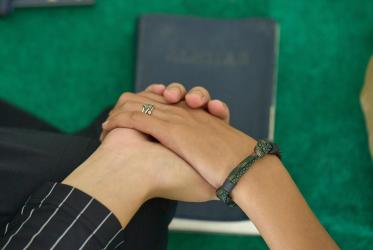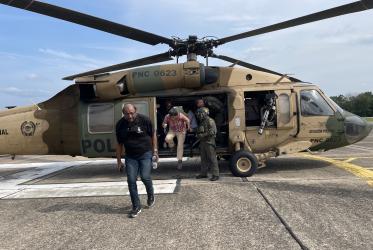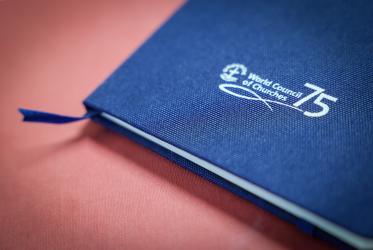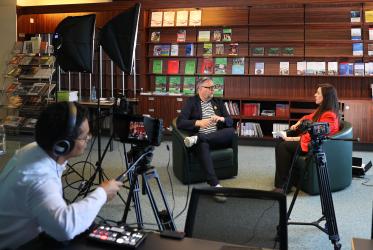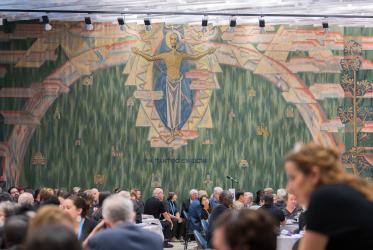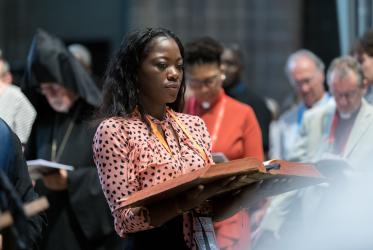Displaying 1 - 20 of 1321
19 April 2024
WCC sees firsthand those most affected by conflict in Colombia
15 December 2023
WCC webinar explores decolonizing beauty
11 December 2023
Towards a Global Vision of the Church, Volume II
Explorations on Global Christianity and Ecclesiology, Faith and Order Paper 239
27 November 2023
Ahead of Her Time
Pan-African Women of Faith and the Vision of Christian Unity, Mission, and Justice
01 November 2023
Greetings pour in to commemorate WCC’s 75th anniversary
22 September 2023
WCC will host consultation on evangelism and formation in Latin America
20 September 2023



